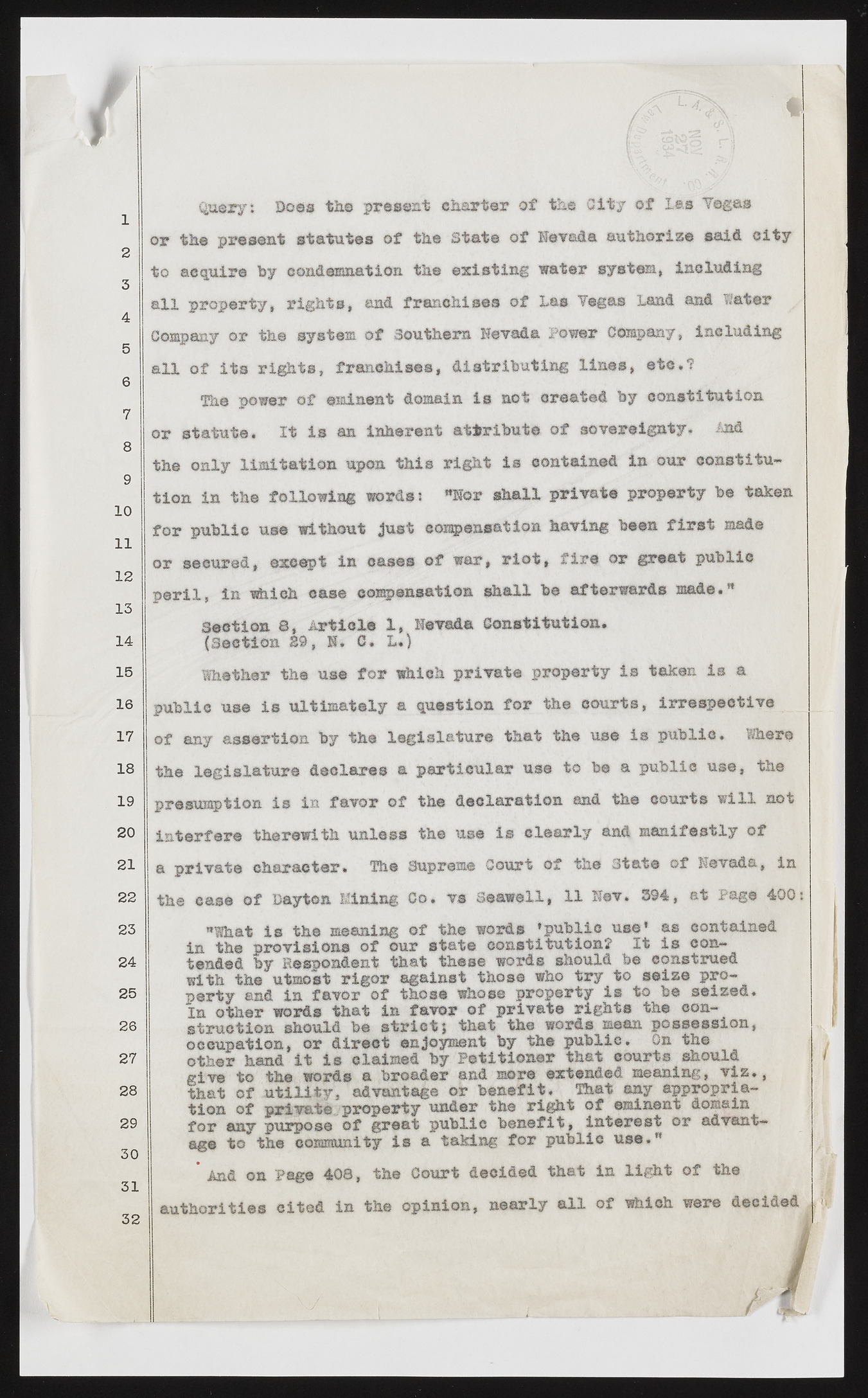Copyright & Fair-use Agreement
UNLV Special Collections provides copies of materials to facilitate private study, scholarship, or research. Material not in the public domain may be used according to fair use of copyrighted materials as defined by copyright law. Please cite us.
Please note that UNLV may not own the copyright to these materials and cannot provide permission to publish or distribute materials when UNLV is not the copyright holder. The user is solely responsible for determining the copyright status of materials and obtaining permission to use material from the copyright holder and for determining whether any permissions relating to any other rights are necessary for the intended use, and for obtaining all required permissions beyond that allowed by fair use.
Read more about our reproduction and use policy.
I agree.Information
Digital ID
Permalink
Details
Member of
More Info
Rights
Digital Provenance
Publisher
Transcription
1 2 3 4 5 6 7 8 9 10 1 1 12 13 14 15 16 17 18 19 20 21 22 23 Query: Boss the present charter o f the City o f Las Togas >r th© present statutes of the Stats o f Havana authorize s a lt city |o acquire by condemnation th© existing water system, including a ll property, righ ts, and franch! bob o f la s Yogas Land and Hater Company or the system of Southern Nevada Power Company, including a ll of it s righ ts, franchises, d istributin g lin e s, e tc . i fhe power o f eminent domain Is not created by constitution si* statute. It is an inherent attribute of sovereignty* And the only lim itation upon this right is contained in our constitution is the following words: *Nor sh a ll private property be taken public use without just compensation having been f i r s t made secured, except in oases o f war, r i o t , f i r e or great public in Which ease compensation sh all be afterwards made.* Section ©, A rtic le 1, Nevada Constitution. (Section 89, N* 0. L.) fhether the use fo r which private property is taken 1 ® a public use i s ultim ately a question fo r the courts, irrespective of any assertion by the legisla tu re that the us® is public. Where the legislatu re declares a p articu lar us® to be a public use, the presumption is in favor of the declaration and the court® w ill not in terfere therewith unless the use is clearly and manifestly of a private character* The Supreme Court of the state of Nevada, is the case of Dayton Mining Co. vs Seawall, 11 Her. $94, at Page 400 **fhat is the meaning of the words ’public use’ as contained in the provisions of our state constitution! It is contended by Respondent that these words should be construed with the utmost rig o r against those who try to seise property and in favor o f those whose property is to be seised. I n other words that in favor of private rights the construction should be s t r ic t ; that the words mean possession, occupation, or direct enjoyment by the public. On the other hand it is claimed by Petitioner that courts should give to th® words a broader and more extended meaning, v iz ., that of u t ilit y , advantage or benefit. That any appropriation of private property under th® right o f eminent domain fo r any purpose o f great public benefit, interest or advantage to th© community is a taking fo r public use.** And on Page 408, the CSowrt decided that in lig h t of th® authorities cited in the opinion, nearly a l l of which were decided

